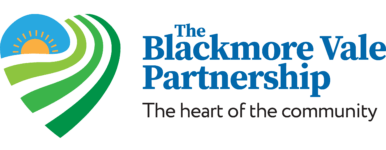Information about ADHD
We hope that you find the following helpful and may answer some questions for you. If, after reading this, you still have further question or query, do book an appointment with your GP.
What is ADHD:
Attention deficit hyperactivity disorder (ADHD) is a condition that affects people’s behaviour. People with ADHD can seem restless, may have trouble concentrating and may act on impulse.
Symptoms of ADHD tend to be noticed at an early age and most cases are diagnosed when children are under 12 years old, but sometimes it’s diagnosed later in childhood. Sometimes ADHD was not recognised when someone was a child, and they are diagnosed later as an adult.
The symptoms of ADHD usually improve with age, but many adults who were diagnosed with the condition at a young age continue to experience problems.
People with ADHD may also have additional problems, such as sleep and anxiety disorders.
You might find it helpful to do a course about ADHD and learn techniques around self management and self help through the Dorset Recovery education centre- Dorset REC. This course is split into 3 sessions. In session 1 we will define ADHD and create a shared understanding of what this means. In session 2 we will explore what it’s like living with ADHD and think about impact, challenges and strengths of ADHD. In the final session, we look at what living well with ADHD could mean to you, and what it means to us. To sign up to this course please follow the link
There is much published literature and guidance online about self-management of ADHD which can be provided to patients in this instance. The Royal College of Psychiatrists information sheet (ADHD in adults |https://www.rcpsych.ac.uk/mental-health/mental-illnesses-and-mental-health-problems/adhd-in-adults contains links to ADDISS, a charity providing information and resources about ADHD, and Adders, an ADHD online information service.
Adults over 18 years:
The adult ADHD service in Dorset is currently very limited and waiting times are extremely long (in Blandford approx. 1year). This is as frustrating for us as it may be for you.
The adult clinic will make an initial assessment but unfortunately there is a very limited comprehensive specialist follow-up after this. Without this ongoing specialist provision, your GP is unable to safely manage / prescribe for adult ADHD in the NHS.
If you still feel you wish to proceed and be referred into this very limited NHS adult service, you will need to fill out a questionnaire and return it to the surgery so that your doctor can refer you.
Private Care option:
It is no surprise that many choose the Private Care option. If you decide to go down this route here are some helpful pointers:
You can self refer to the private clinic of your choice. You do not need a GP referral.
National and local guidance make it very clear that, for reasons of safety and equity, the private and NHS sectors should be kept separated as much as possible; that it can’t be assumed possible to “pick and mix” parts of care from each. For example, expecting an NHS GP to be able to prescribe medications on the NHS that have been advised by a private doctor.
If you choose to go privately, this means that you should not rely on the NHS sharing ADHD care (and costs) at any future date; please do consider from the outset that you may need to be paying all private costs into the long term.
It is of course possible to refer you back into the NHS, if/ when there is an appropriate service to refer you to. Your private consultant can do this directly at any stage.
